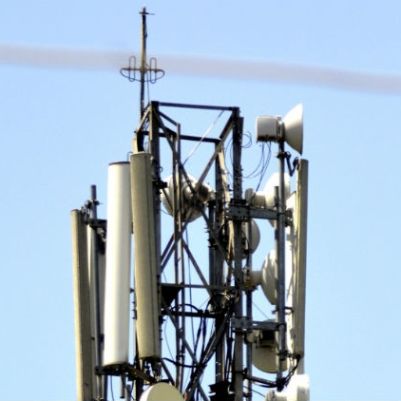  The telecom department is likely to write to the law ministry, asking whether it could go for a flat rate for annual spectrum usage charge (SUC), a move which could further divide older operators Vodafone Idea and Bharti Airtel on one side and latest entrant Reliance Jio Infocomm on the other.
Under the current regime, the charge varies depending on the time an operator bought the spectrum and a senior department of telecom official said this could give rise to arbitrage. The government is planning to auction both 4G and 5G airwaves in the next auction slated for 2019.
The new development means DoT could be revisiting the contentious issue of levying a flat SUC, which had divided the industry back in 2016 as well ahead of the then spectrum auctions. The department then wanted to revise the SUC for all auctioned airwaves, including the 4G airwaves bought in 2010, to a flat 4.5% of annual revenue, but Jio had opposed the proposal. The 4G spectrum sold in 2010 attracts a 1% SUC, and most of Jio’s spectrum had come from that auction (Infotel Broadband that had won the spectrum at the time was later acquired by Jio’s parent, Reliance Industries). Airwaves sold through subsequent auctions attract higher rates.
DoT had to water down its proposal, following a legal opinion from the attorney general that the SUC for 4G airwaves sold in 2010 could not be changed retrospectively as it was part of a legal auction document.
The DoT official though said the matter should be relooked at since going forward, there could be further difficulties in segregating the airwaves, including non-auctioned ones and 4G airwaves sold in 2010, based on the services provided on those. As spectrum being technology neutral, any band can be used to offer any technology — so, the current 4G bands can be used to offer 5G in future.
“Going forward, as airwaves become technology neutral, previously fixed SUCs might become outdated and it might be a good decision to just have a flat rate instead,” the official told ET.
Revision of levies, including licence fees and SUC, is also one of the main tasks set out under the new telecom policy recently notified by the government. The sector regulator had previously also recommended a flat rate for SUC, gradually going down to 1% of revenue.
The DoT official though said the flat charge would have to be revenue neutral and might require certain operators to pay more and some to pay lesser than what they already do.
Any rise in the rate of the 4G airwaves of 2010 would mean a higher outgo for Jio. Others may benefit if the SUC is lowered from current levels, say experts.
Following the attorney general’s opinion, the government had lowered the annual SUC for telcos to 3% of revenue for all bands that were sold in 2016 — from 5% in the previous two auctions — and kept that fee at 1% for the 4G spectrum bought in 2010. It, however, brought those 4G airwaves under the ambit of a formula to calculate the overall fee for each carrier.
The government now plans to sell airwaves across multiple bands — 4G bands of 700 MHz, 800 MHz, 900 MHz, 1,800 MHz, 2100 MHz, 2300 MHz and 2500 MHz, besides 5G spectrum in the 3300-3600 MHz bands. These will be offered to market leader Vodafone Idea, second ranked Bharti Airtel and Jio. |